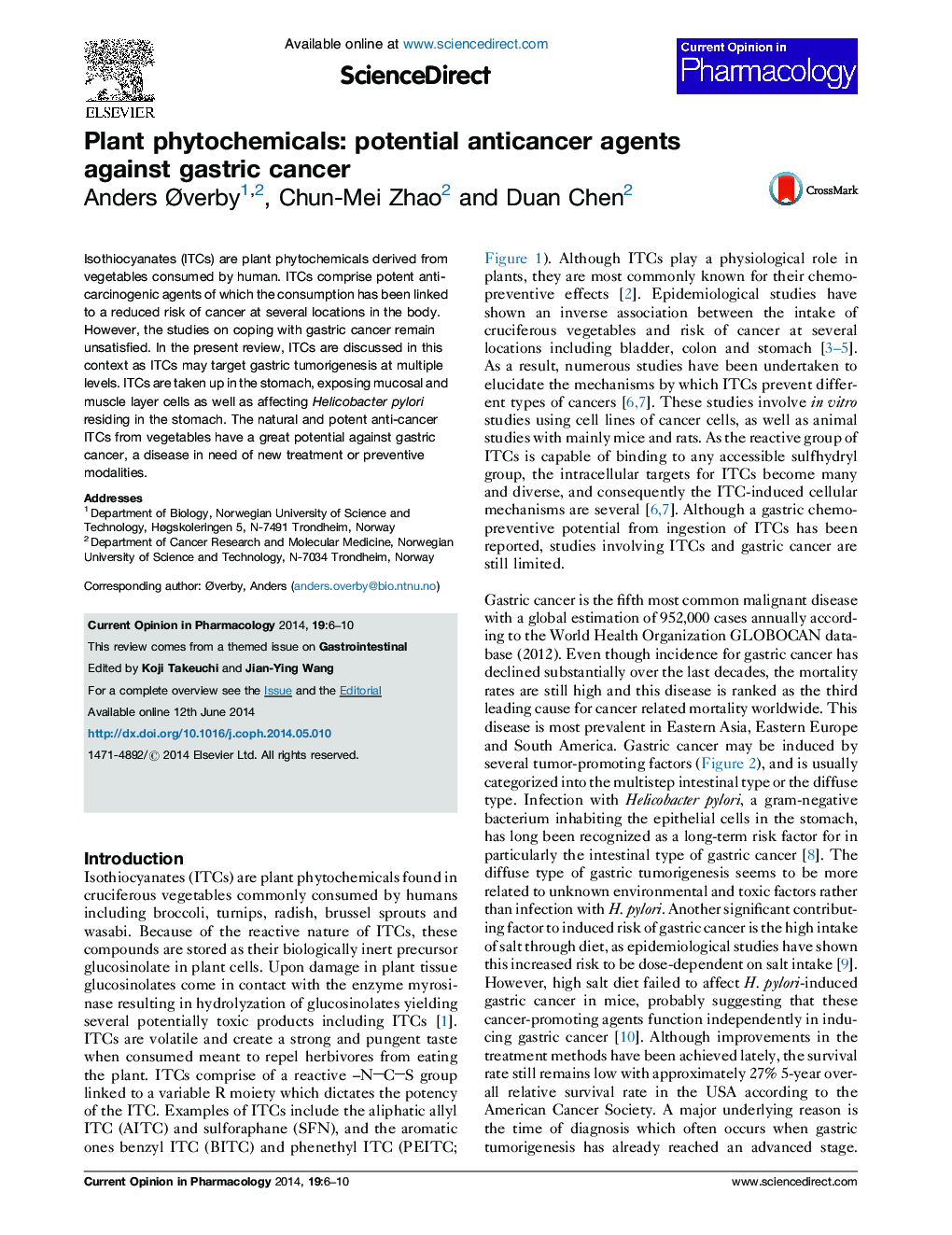| Article ID | Journal | Published Year | Pages | File Type |
|---|---|---|---|---|
| 2529902 | Current Opinion in Pharmacology | 2014 | 5 Pages |
•Consumption of isothiocyanates is epidemiologically linked to reduced risk gastric cancer risk.•ITC may prevent gastric cancer by interfering with multiple tumor promoting factors.•ITC may reduce colonization of Helicobacter pylori in human stomach.•ITC leads to loss of microtubules and increase in apoptosis in gastric cancer cells.
Isothiocyanates (ITCs) are plant phytochemicals derived from vegetables consumed by human. ITCs comprise potent anti-carcinogenic agents of which the consumption has been linked to a reduced risk of cancer at several locations in the body. However, the studies on coping with gastric cancer remain unsatisfied. In the present review, ITCs are discussed in this context as ITCs may target gastric tumorigenesis at multiple levels. ITCs are taken up in the stomach, exposing mucosal and muscle layer cells as well as affecting Helicobacter pylori residing in the stomach. The natural and potent anti-cancer ITCs from vegetables have a great potential against gastric cancer, a disease in need of new treatment or preventive modalities.
